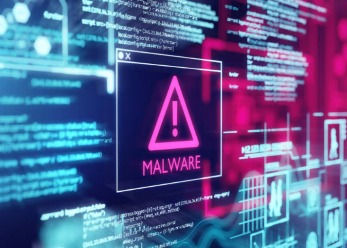Signs of a Security Breach and How to Protect Yourself from Hacking
- fwebster8
- Nov 5, 2023
- 3 min read

The online landscape is constantly evolving with new
technologies, making it increasingly challenging to
ensure your digital safety. Despite your best efforts, the possibility of falling victim to a cyberattack remains. Detecting a breach as early as possible and taking swift action are crucial in minimizing the damage. In this article, we will outline the telltale signs that you might have been hacked and provide suggestions for resolving such issues.
Indicators That Your Online Accounts May Be Compromised
Unusual Activity. Friends or family members alert you to receiving unfamiliar messages or invites from your online accounts, which you know you didn't send.
Password Problems. You find that the password for one of your accounts no longer works, even though you're certain it is correct.
Unauthorized Access. You receive notifications from websites stating that someone has logged into your account when you know you haven't accessed it.
Profile Changes. You receive emails confirming alterations to your online profile that you didn't make.
Signs Your Computer or Mobile Device Might Be Hacked
Antivirus Alerts. Your antivirus software generates an alert indicating that your system is infected. Verify that the alert is from your legitimate antivirus program, and not a deceptive pop-up window from a malicious website. You can open your antivirus program separately to confirm your computer's status.
Unwanted Redirections. While browsing the web, you frequently encounter unwanted page redirections or pop-ups leading to sites you didn't intend to visit.
Ransom Demands. A pop-up window appears, informing you that your computer has been encrypted, and you must pay a ransom to regain access to your files.
Clues of a Financial Security Breach
Suspicious Transactions. You notice unfamiliar or unauthorized charges on your credit card or suspicious transfers in your bank account that you didn't initiate.
What to Do Next – Regaining Control
If you suspect a hack, try to remain calm. You can recover from this situation. If the breach is related to your work, avoid attempting to resolve it yourself; report it immediately. For personal systems or accounts, follow these steps:
Recovering Your Online Accounts
If you still have access to your account, log in from a trusted computer and reset your password with a new, strong, and unique one. Longer passwords are more secure. Enable Multi-Factor Authentication (MFA) if you hadn't done so.
If you've lost access to your account, contact the website's support and inform them that your account has been compromised. Change the passwords of any accounts that share the same password as the hacked one.
Recovering Your Personal Computer or Device
If your antivirus program cannot resolve the issue or you want to ensure the system's security, consider reinstalling the operating system and rebuilding your computer. Alternatively, consider purchasing a new computer if your existing one is old or you're uncomfortable with the rebuilding process.
Financial Impact
If you notice unauthorized financial activity, contact your bank or credit card company immediately to report the issue. The sooner you reach out, the better your chances of recovering your money. Use the trusted phone number provided on the back of your bank card or their official website. Regularly monitor your statements and credit reports, and enable automated notifications for any charges or money transfers.
Preventing Future Cyberattacks
To stay ahead of cyber attackers, it's essential to adopt these security practices:
Keep all your systems and devices up to date with the latest software versions.
Use strong, unique passwords for each of your accounts, manage them with a Password Manager, and enable Multi-Factor Authentication (MFA).
Be vigilant and watch out for social engineering tactics such as phishing emails.
By following these guidelines, you can better protect yourself from potential hacking incidents and maintain your online security. If you're interested in further information on safeguarding your digital presence, consider subscribing to our monthly Security Awareness newsletter, which offers valuable resources on maintaining your online safety. Contact us here: ITWIZ-CONTACT



Comments